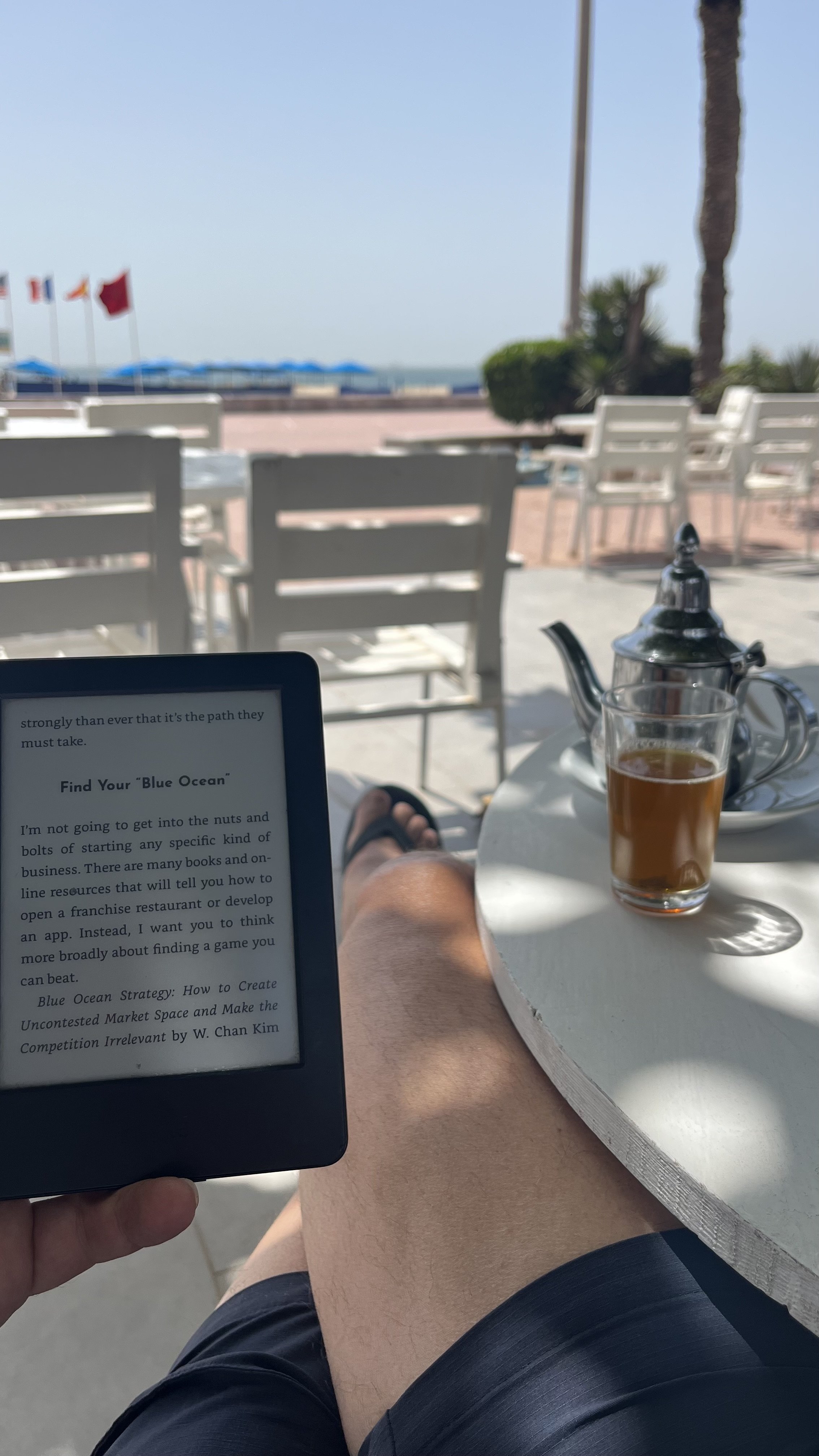People often wonder how I find time to read despite a busy life full time traveling plus handle my investments and family. The key lies in my lifestyle choices. I don't watch much TV and don't wast time on social media. When I’m home, my viewing is limited to selected content on Netflix, YouTube, and Amazon Prime. I just love to enjoy sometimes a movie with my wife.
Such decisions are intentional. Consider the average person who might spend two hours daily on TV, an hour commuting, and a couple of hours weekly shopping. This totals about twenty-three hours weekly or 1,380 minutes. This time could equate to reading nearly 700 pages a week. If that seems too much, even 25 pages daily can make a significant difference.
Shane Parrish writes:
While most of us don't have the time to read a whole book in one sitting, we do have the time to read 25 pages a day. Reading the right books, even if it's a few pages a day, is one of the best ways to ensure that you go to bed a little smarter than you woke up.
Reading 25 pages daily might seem modest, yet it accumulates significantly over time. Assuming you miss reading on two days each month and on Christmas, you still have 340 days a year dedicated to reading. At a rate of 25 pages per day for 340 days, you'd complete 8,500 pages. However, I often find myself reading beyond the 25-page minimum, so let's round it up to 10,000 pages (just by increasing the daily goal to 30 pages).
With a yearly goal of 10,000 pages at an average of 25 pages per day, let's see what can be accomplished. You could read "The Power Broker" at 1,100 pages, the four LBJ books by Robert Caro totaling 3,552 pages, Tolstoy's "War and Peace" and "Anna Karenina" adding up to 2,160 pages, and all six volumes of Gibbon's "The Decline and Fall of the Roman Empire," which are about 3,660 pages. Altogether, this would account for 10,472 pages.
By dedicating yourself to reading 25 pages each day, you can complete 13 significant works in just one year, gaining a vast understanding of world history. In the following year, you could tackle Shirer's "Rise and Fall of the Third Reich" (1,280 pages), Carl Sandburg's six-volume set on Lincoln (2,000 pages), the unabridged "Wealth of Nations" by Adam Smith (1,200 pages), and Boswell's "Johnson" (1,300 pages), with enough time left to explore other readings.
This method of reading great works—25 pages daily—is a powerful habit-builder. It's about cultivating a consistent reading routine. This 25-page daily goal isn't just about quantity; it fosters a lifelong habit.
Choose readings that captivate and intrigue you, allowing your interests to evolve naturally. Pursuing truth, reality, and knowledge will lead you through diverse paths, making reading a joyful and enriching experience. As Nassim Taleb notes, "Curiosity is antifragile, like an addiction; magnified by attempts to satisfy it." This means the more you read, the more your curiosity grows, leading to an ever-expanding list of books to explore.
This is the essence of being a lifelong learner, a process of accumulating wisdom. Valuing your time and dedicating it to reading and learning enriches your life immeasurably, as David Ogilvy suggests.
I always have a book nearby, whether it's on my Amazon Kindle or a physical copy. There's a special tranquility in reading a physical book that I particularly enjoy. During my traveling days around the world, on a daily basis, I used books to make the most of every minute.
Finding time to read is simpler than it seems. Whether waiting for a bus, taxi, train, or plane, or at the airport, every moment is an opportunity to read.




